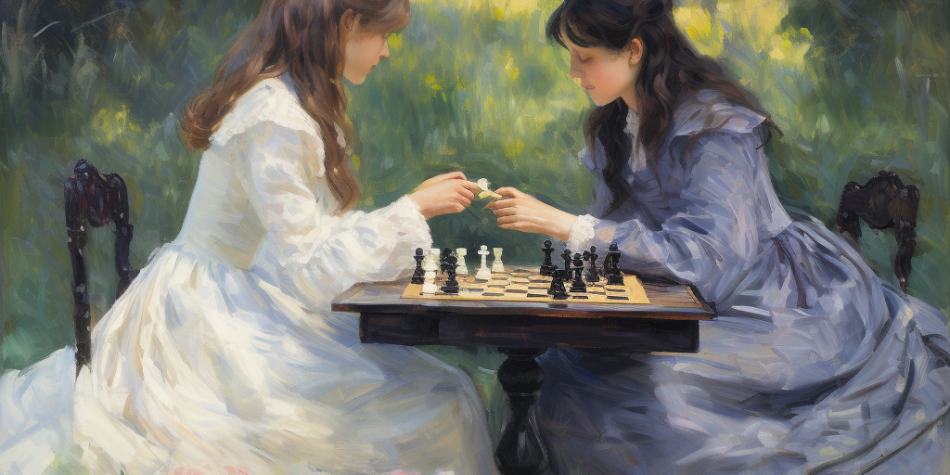In a Public Square interview published earlier this year, Patrick Mason wrote,
When it comes to gender, sexuality, and marriage, I think that over the past two decades, liberals and progressives have done a better job than conservatives of making persuasive arguments for their positions. I think conservatives have often been flat-footed and have resorted to defending their positions based purely on authority or tradition . …
He concludes, “Frankly, liberals and progressives have, in recent decades, won the contest of ideas.”
There are good reasons to disagree, but before we even get that far: If we’re asking whether progressives have won “the contest of ideas,” what kind of “contest” are we talking about?
What Is the Contest of Ideas?
Is it like the Olympics? Americans are clearly winning the contest of medals: with 4% of the world’s population, we’ve won nearly 15% of all medals awarded. Of course, if you’ve ingested a little critical theory (a useful drug sometimes, but watch the dose), you’ll remember we also have about 25% of the world’s GDP, and the category “things money can buy” absolutely includes Olympic medals.
Money means well-fed kids with time for sports and leagues for them to compete in. It means scholarships and sponsorships, top tech and top coaches. And money doesn’t just mean rich athletic programs; it means rich athletic audiences, with rich advertisers hunting their eyeballs and rich TV contracts for the IOC if it stocks the Olympics with lots of sports they like to watch.
None of this takes away from any individual athlete’s performance. The medalists are all virtuosi of their arts, living images of their particular forms of human excellence. But (and here’s another dose of critical theory) the fairness of individual outcomes does not guarantee the fairness of the system as a whole.
Michael Phelps has 28 medals, and the entire country of Nigeria, home to 200 million people, has 27. From this, we may infer two things: Michael Phelps is a truly phenomenal athlete, and the IOC doesn’t make much money from Nigeria winning medals.
So is the contest of ideas like the Olympics?
Or maybe it’s like baseball. Before the statisticians took over, teams didn’t really understand how to win—their thinking wasn’t much more precise than “hits good, strikeouts bad.”
But they loved baseball, so they chose players who could do the things they loved about baseball—five-tool players, they called them, who could hit for average, hit for power, field the ball, throw the ball, and steal bases. They praised the “sweet swing,” the beautiful game, and the game was beautiful to the fans, too.
Until the statisticians proved that beautiful baseball wasn’t the way to win. They discovered that walks (boring) were often as good as hits (fun), sacrifice bunts (kinda fun) and stealing bases (great fun) were often counterproductive, and a few extra home runs were worth a lot of extra strikeouts (reeeeally boring). The statisticians turned the five tools into something like two and a half, as teams realized running and throwing hardly mattered next to the all-important extra-base hits.
Or next to “pitch-framing,” the dark art of manipulating the umpire’s perception of balls and strikes. Did anyone ever become a baseball fan by watching a catcher subtly slide his glove toward the zone as he caught the pitch? And yet teams began spending millions to sign and train catchers who could do it.
You’d hear the old-timers grouse, “Nobody knows how to play the game anymore,” and they couldn’t have been more wrong. The problem was the game itself, ostensibly aiming to entertain but rewarding teams for play that wasn’t entertaining.
Or maybe the contest of ideas is a beauty pageant—but not an ordinary beauty pageant, where judges pick the contestants they honestly find most beautiful. No, it’s Keynes’ second-order beauty pageant, in which judges are rewarded if their picks match the picks of the most other judges.
So, examining each new face, the judges do not ask, “Does this person possess true beauty? Does something about her shine through the veil of our flawed reality, giving glimpses of the divine potential of the human form?” Instead, they ask, “Are long noses hot this year? What will the European judges think of thick eyebrows?” Or, more precisely, “What will the European judges think the other judges will think of thick eyebrows,” since the European judges, too, are trying to choose not what is beautiful but what is popular.
And if the pageant winners aren’t what most people would call pretty, if the man in the street squints and frowns and wonders how on earth she could have beaten her and who picks these judges anyway, then that only proves how lost we’d be without the trained experts! Because the contest’s purpose is not, ultimately, to recognize and praise human beauty, which all men and women can do for themselves. It is (critical theory again!) to perpetuate the contest itself and the wealth and privilege of the people running it.
And how could the contest do that if it merely acknowledged the beauty standards that people already have? You could just commission a poll and be done with it, with no need for trained experts, and Beyoncé could win every year. No: if the beauty contest and its experts are going to matter, if they’re going to keep making money, then they have no choice but to invent and promote new standards of beauty—even if it means abandoning beauty for an ever-evolving strain of cultivated ugliness.
This can happen even without anyone involved consciously intending it. The systems of power and prestige are sneaky things, and the people on top of them are often those who fit them best—those who navigate them naturally, without thinking, and thus never have a reason to realize they’re there.
That’s probably enough fun with metaphors.
It turns out, when you get away from the few sentences I quoted above, that Professor Mason says a lot of things about the contest of ideas that I agree with. I agree orthodox Latter-day Saints shouldn’t argue exclusively from authority and tradition. I agree we should do a better job clothing the Gospel spirit in cultural and theological flesh so that the world (and our own youth) can see Christ’s message in our teachings and lives and wards and families.
And I definitely, definitely agree with the professor when he says the people winning the contest of ideas aren’t always right. Because let’s face it: our contest of ideas is a mess.
The Contest of Ideas Is a Mess
Let’s start with the scientists. “Most Published Research Findings Are False,” concluded one famous paper. Last year alone saw 4,600 scientific papers retracted—4,600!—and those are just the ones that got caught; one recent study estimated that, worldwide, about a quarter of published papers—hundreds of thousands annually—are completely fake.
Even non-faked papers often prove nothing but the persistence and ingenuity of publication-hungry scholars: if you run enough studies, then you’re guaranteed to pass the p-test on something, and if it’s taking too long, you can always get creative.
“This is all okay!” science’s cheerleaders shout, “because science corrects itself! Other scientists catch the frauds and false positives, and the quest for knowledge moves on!”
And that happens … sometimes, just like bunting still happens in baseball sometimes. But “science correcting itself” is not what the system rewards. Nobody ever became president of Stanford or a Nobel laureate by double-checking other people’s studies, and as long as your papers are making it through peer review, then why should you care if they rely on someone else’s bogus research? Even fraudulent papers, even after retraction, can go on to be cited hundreds of times.
The upshot: “Progress is slowing down, not just in one or two places, but across many domains of science and technology.”
And if things are that bad in science, where new experiments are always giving reality the chance to nudge or bludgeon erring researchers in truth’s general direction, then why should we put any trust in the less empirical disciplines, the ones where you don’t need to hack your p-tests because there aren’t any?
Without empirical data, the only thing distinguishing a scholarly journal from a blog is the professionalism of the peer reviewers who decide what will and won’t be published—which is fine when the discipline’s standards of professionalism are calibrated to seek the truth.
But why should they be? Doesn’t critical theory teach us that even ostensibly neutral rules usually serve the interests of the rule-makers? Shouldn’t we expect the same thing about scholarly standards of professionalism? And why should we assume it’s in the academic rule-makers’ interest to seek truth any more than it’s in our pageant judges’ interest to seek beauty?
Instead of truth, why wouldn’t the rule-makers chase “relevance,” an aging academic buzzword defined roughly as “a chance of getting you on NPR”? Why wouldn’t they prostitute their professional standards to cultural and political movements that give them praise and money—for example, by publishing complete nonsense when it supports fashionable conclusions? Why wouldn’t they suffocate competing ideas and build incestuous little empires of like-minded scholars, all busy giving each other citations and jobs and grants?
“Peer review”—isn’t that what happens in middle school lunchrooms?
And yet: our peer-reviewed academic system, with all its predictable flaws and biases, can still accomplish amazing things in the pursuit of truth, especially if you compare it to the alternatives—social media, podcasts, cable news, popular nonfiction, and so on. Further, the alternatives to academia are all influenced by academia; their participants are mostly trained by it, and none of them affords the same opportunity as academia for intelligent people to think full-time about difficult questions, critique each other’s ideas, and move, however haltingly, forward towards the truth.
Which is why it still hurts that faithful scholarship is largely shut out.
It doesn’t have to happen on purpose. If you’re a passionate believer in the Family Proclamation, then you’re likely to build your life around it, and that means marriage (if you’re able) and kids (if you’re able) and service at church and (I hope) time devoted to your parents and siblings—all of which puts you at a disadvantage compared to scholars who build their lives around their careers, who can work seven days a week and move cross-country for new fellowships and go get another degree if necessary. The more your kids grow in age and number, the more they have to sacrifice while you’re hunting tenure until you might find yourself asking, “Is this contest of ideas the noble vocation I imagined—or is it a selfish hobby making everyone else in my life suffer?”
Forget defending the Family Proclamation; entering today’s academic profession is already difficult enough if you just have a family.
But let’s be honest here: of course faithful ideas are excluded on purpose. Polls have found large numbers of scholars in various fields admitting their willingness to discriminate against job candidates who are conservative or religious. They’ve found growing numbers of professors self-censoring to protect their careers—and for good reason, with attempts to punish professors’ speech having risen thirtyfold since the year 2000. Even a famous Christian philosopher, speaking by invitation to an explicitly Christian philosophical society, can’t defend orthodox sexual ethics without his hosts apologizing for it afterward.
If you’ve spent much time hanging out with socially conservative aspirants to the professoriate, then you’ve probably heard the question, “What are you going to write about until you get tenure?” In other words, “To what subject, uninteresting to you but inoffensive to politically progressive hiring committees, will you devote the next ten or fifteen years of your life so that in your late thirties (or later!) you can finally start thinking the thoughts and writing the words that made you want to become a scholar in the first place?”
I don’t remember the young conservatives asking the other questions this raises, for example: “Can you really write tenure-quality scholarship on a subject you don’t care about?” or “After you’ve built an entire professional identity as an apolitical scholar or at best a moderate, housebroken conservative; after you’ve closed the door on other careers and come to need every penny of your salary to raise your children and save for retirement; will you really have the courage to risk blowing it all up?”
Or maybe, “If you spend ten or fifteen years hiding your testimony to get tenure, what makes you think you’ll still have one when you’re done?”
Though I do remember seeing young progressive scholars and asking myself a different question: “What must it be like to begin an academic career without the hiring committees abominating your deepest beliefs?”
All of which makes Professor Mason’s words about the contest of ideas sound a bit like an American telling Nigeria, “Just try harder, I’m sure you’ll win the medal count next time.”
So What Should We Do?
In all the Major Leagues’ years of boring baseball (which, in fairness, they’re trying to fix), the game’s true lovers always knew the secret. You could still watch non-boring baseball—you just had to leave the big names and the big games for the youth leagues and the high school teams; in a word, the amateurs.
And so it is with Gospel scholarship. The Charles Anthons of the world will never be satisfied; in academia as elsewhere, the dominions of the faithful will always be small.
Most of them will be “independent scholars,” or professors of other subjects quietly moonlighting, or doctors or lawyers writing in their free time. Their work will often appear in publications that no Serious Scholar reads, and it will often be unprofessional—their pitch-framing will be lousy, and their pageant gowns badly out of date. They will sometimes miss the truth by being faith-affirming, as the secular academy often misses it by faithlessness.
But the Church was not restored for the sake of good scholarship; when the weak things of the world come forth, it will not be to impress the mighty and strong ones with their valuable contributions to the literature.
And the contest of ideas?
Jesus went where the sinners were, and his disciples should do the same when they’re able. In the end, though, they’re not in the contest to win—just to learn, to share what they’ve learned, and to bear witness.

















